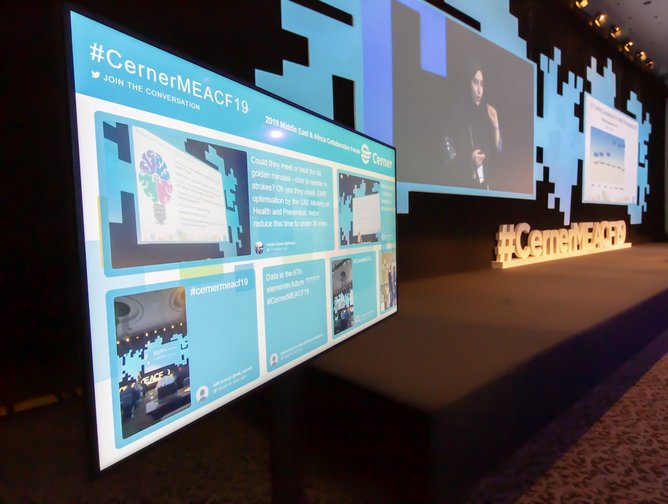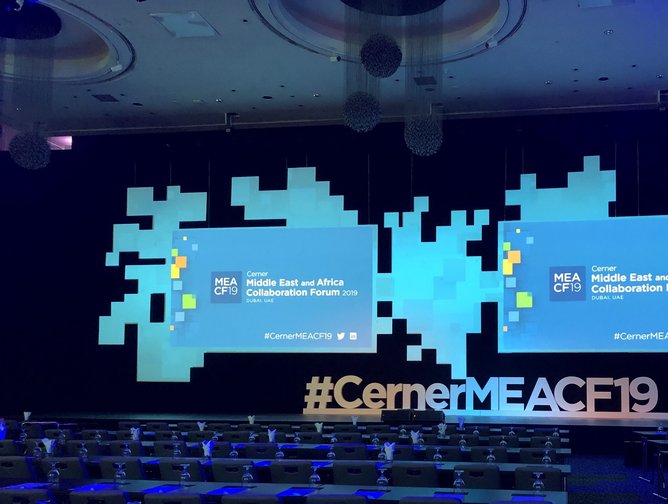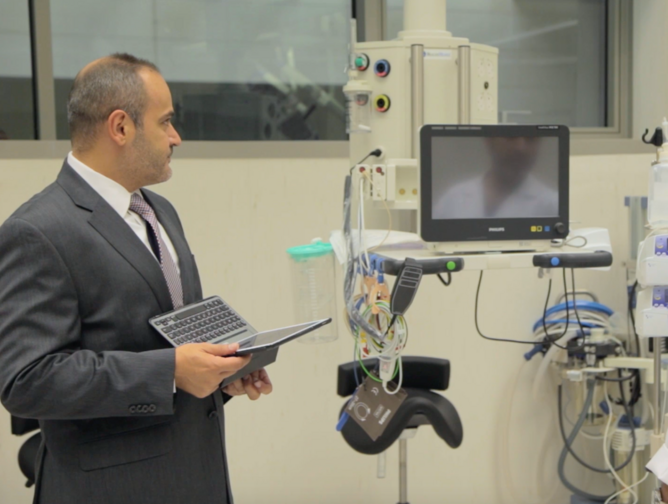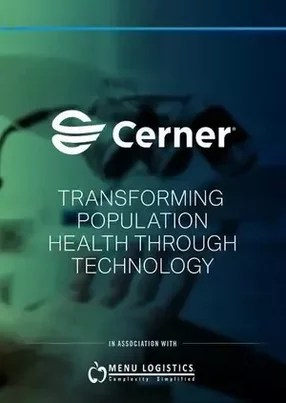Cerner and the UAE’s Ministry of Health and Prevention: A digital transform
A world without medical error is, for many people, an impossible dream. In 2017, the World Health Organisation estimated the global cost of medication-related errors at US$42bn annually. In the United States, medical error accounts for anywhere between 210,000 and 400,000 deaths per year – making it the third largest cause of mortality in the country, according to a report by Patient Safety America. However, Missouri-based healthcare information technology (IT) company Cerner Corporation is working toward the goal of a world without medical error. “In a complex world, error can come from a lack of information, communication, research or genetic information – and it’s preventable. We believe in an integrated, patient centred system where information flows easily yet securely across the health economy, regardless of care venue or local technology platforms. Ultimately, we believe that healthcare is too important to stay the same,” the company says on its official website.
Founded in 1979, Cerner has spent more than 40 years providing IT solutions to healthcare operations around the world, ranging from single physician practices to entire countries. With a network of over 29,000 associates in more than 35 countries, Cerner specialises in innovative end-to-end solutions that allow its clients in the health space to provide more effective medical care to their patients. Since 2014, Cerner has been engaged in a partnership with the United Arab Emirates Ministry of Health and Prevention (MOHAP), overseeing the digital transformation of the organisation’s IT infrastructure and operations. “In my opinion, healthcare IT is no different than any other tool that physicians and nurses use. We are the CT or the MRI interpretation for the physicians. We are the assisting physician, nurse or clinician to the caregivers, and we exist wherever they exist,” says Bashar Balish, MD, Chief Information Officer (CIO) of the strategic partnership between Cerner and the UAE MOHAP. The relationship is the first of its kind for the company outside the US. “We have a dedicated team working for the MOHAP on IT applications, change management, physician and nursing adoption, providing technology support, a help desk and other IT functions. In addition to that, we also manage their data centre,” says Balish. We sat down with Balish to discover more about this unique partnership and how Cerner is propelling MOHAP further along its digital transformation journey, as industry 4.0 continues to disrupt and reshape one of the world’s oldest professions.
“I've been in the healthcare industry for close to 20 years,” says Balish. “I started as a physician. In 2001, I shifted to the business side and then got introduced to healthcare IT in 2003.” As a medical professional and IT specialist, Balish is acutely aware of the need for synergy between a healthcare organisation and its IT solutions providers. “There really needs to be an alignment between our vision and the country’s healthcare vision; there needs to be an alignment between our roadmap and the client’s roadmap. The relationship needs to create synergy between the two organisations,” he explains. A significant proportion of the work done by Cerner in partnership with the MOHAP is helping the organisation align its goals with those of the UAE’s Vision 2021. Launched in 2010, the UAE government’s plan centres around the social and economic development of the nation towards a diversified, knowledge-based economy. One that can “compete with the private sector in terms of the calibre of service it provides,” according to Emirates Crown Prince his Highness Sheikh Mohammed bin Zayed Al Nahyan. Balish says, “We've been working closely with the physicians and nurses in order to achieve their organisation’s goals of becoming smarter and more relevant to their business, as well as to the community they're serving and enabling. My own role is focused on making sure that the tools these physicians and nurses use are smart enough to support the program and to push it to the next level by providing both an automated way of running things and smart analytics.”
Balish believes that analytics will increasingly reshape the way healthcare organisations approach population health, an idea that he places at the forefront of the healthcare industry’s unfolding story. “Over the last 15 to 20 years, we’ve seen healthcare management extend past the four walls of the hospital. The factors that interfere with your health are your school, your place of worship, your home, etc. Our vision is to know the population better, to connect different variables around healthcare to one platform and manage that population to improve the health of our communities,” says Balish. “Analytics is an important module in our population health platform. We look at the trends, we look at the behaviour of the data and the behaviour of the population and we connect the dots. We predict trends, predict behaviours in the population and suggest protocols to manage these trends. We are seeing that analytics have shifted the operational model of the organisation towards data driven behaviour, and that's wonderful.” Balish also notes that the power of new healthcare technologies includes their ability to scale across regions, continents and the world. “Analytics will drive the bigger programs of population health management,” he predicts.
However, he acknowledges that mass adoption is struggling to take hold. “All of these are the concepts and new trends that we're focusing on at this stage. At present, a solid platform that provides affordable health to the population does not exist. Technologies for this platform - analytics, AI and deep machine learning - do exist, but at an affordable price? We’re not there yet. I don't think the industry has yet matured enough to fully utilise the technologies available.” Looking to the future, Balish aims to “ensure that the strategy leverages all the available technologies, tackles the current adoption issues and ultimately delivers quality care and a lower cost.” He sees this realisation dawning across the rest of the industry. “I think everyone is starting to realise that no one can do it alone. Cerner has started a commonWell health Alliance IT. We work with other healthcare IT providers, even our competitors, on exchanging data. That’s the only way to do it: write standards, change protocols, make it more affordable for the market to work on transferring data between different organisations.”
While Balish is “very optimistic about the future”, he maintains: “The future will not realise its potential until all healthcare providers, companies and vendors work together with one vision, which is consumer benefit. Healthcare can't afford to stay still.”




- OpenText’s Muhi Majzoub: Engineering Platform Growth with AIEnterprise IT
- Top 100 Women 2024: Tanja Rueckert, Bosch - No. 6Digital Transformation
- OpenText CEO Roundtable: The Future of Safe Enterprise AIDigital Transformation
- OpenText AI: Empowering Businesses in Information ManagementDigital Transformation

